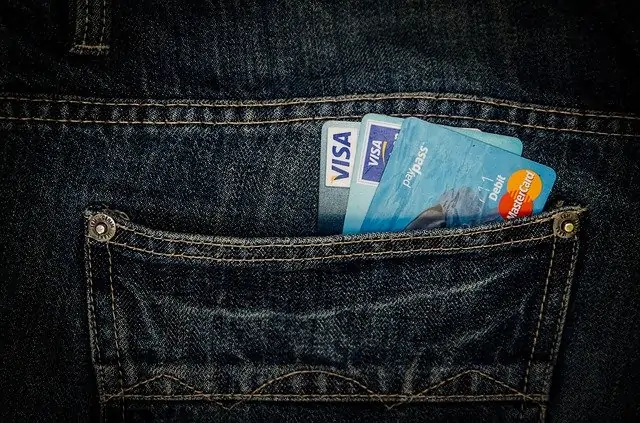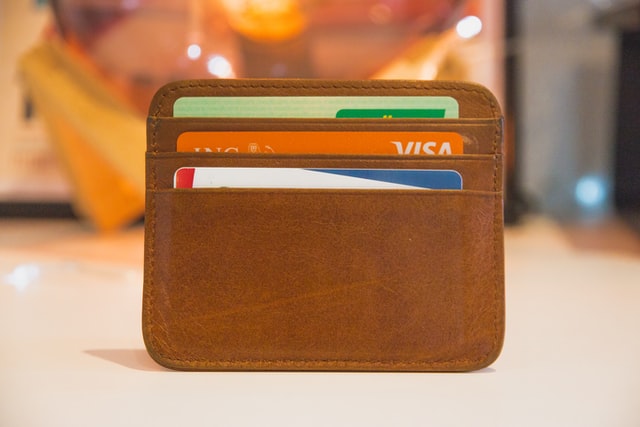This post contains affiliate links. It means that if you click on the links and make a purchase, we will receive a small commission at no additional cost to you. This allows our blog to continue providing you with free information. We only include links and products that we truly believe in. You can read the full disclosure here.
Moving to Germany or new in Germany? Check out our Resources Page for all the help you need!
Are you planning to study in Germany? I still remember the excitement when I got an offer from a German university. It was really a life-changing experience to study in Germany. And now, you are preparing to move to Germany and you wonder what a blocked bank account is. Don’t worry. Opening a blocked account does not have to be a complicated process.
In this guide, you will learn everything about opening a blocked bank account in Germany. You will also find a comparison of the 3 best blocked bank account providers. We also include some tips to ensure your blocked bank account will be opened and activated in Germany smoothly.
Table of Contents
ToggleA short summary of the best blocked bank account providers in Germany
If you don’t have much time, here are the highlights of the 3 best blocked bank account providers in Germany:
Expatrio: Cheap, fast, easy, and secure. 100% online process. Money-back guarantee in case of visa refusal. Optional health insurance and current bank account.
Fintiba – Fast, easy, and secure. 100% online process. Convenient mobile app. Additional digital services. Optional health insurance.
Coracle: Cheap, Easy, fast, and secure. 100% online process. No monthly fee. Money-back guarantee in case of visa refusal. Optional and free choice of public health insurance.
Keep on reading for more details about opening a blocked bank account in Germany. Scroll down for a detailed comparison table of the best blocked bank account providers in Germany.
What is a blocked bank account?
Why do you need one?
Non-EU residents will need to get a German student visa or student residence permit if they want to study in Germany. One of the requirements to get a German student visa is to prove that they can support themselves financially in Germany. There are different ways to provide financial proof. The most common way is to open a blocked bank account (Sperrkonto) in Germany.
Note that not only non-EU students may need a blocked bank account in Germany. Au-pairs or job seekers who want to move to Germany will also need to have a blocked bank account in Germany to secure their visas.
Read also: 42 Moving Tips – Moving Locally or Internationally
How does it work?
If you need to open a blocked bank account, you will need to do so already before arriving in Germany. A blocked account is a special account in which you have to deposit at least 11,208 € to prove that you can support yourself during your planned stay in Germany (for up to 12 months).
After arriving in Germany, you can only withdraw 934 € per month from your blocked bank account. This is to ensure that you have enough money to support your day-to-day living expenses every month during your stay in Germany.
Note that you will not get any ATM card for your blocked bank account in Germany. You also cannot make payments or withdraw the 934€ per month directly from your blocked bank account. Instead, you need to transfer this amount monthly from your blocked account to your regular current bank account in Germany. You can then withdraw the money from your current bank account as usual.
You will not earn interest on the deposit in your blocked bank account in Germany. On the contrary, there are costs associated with a blocked bank account. For example, the one-time setup fee and the recurrent monthly administrative fee.
Read also: Cost of living in Germany – How to save money?
Who needs a blocked bank account in Germany?
You will need a blocked bank account if…
If you are a non-EU resident and you want to go to Germany for the long term with a visa, you will likely need to open a blocked bank account. This applies to university students, job seekers, au-pairs, language students, etc.
Note that opening a blocked bank account in Germany is only one of the visa requirements. To obtain your visa, you will also need to have travel insurance and German health insurance after you move to Germany. You can purchase them individually, or you can get them together with your blocked account if your provider offers an all-in-one package.
The German health insurance system can be confusing to expats at the beginning. You can see some more explanations here.
You won’t need a blocked bank account if…
If you move to Germany with a blue card or work visa, or if you are simply traveling in Germany, you do not need to open a blocked bank account. However, you will need to open a normal bank account in Germany if you stay in Germany for the long term.
Most traditional banks in Germany charge a monthly fee nowadays and most of them have no English services. I would highly recommend getting a bank account in Germany that offers English services, especially if your German is not up to speed yet. You can check out this post for some free/ cheap bank accounts to use in Germany with English services: Opening a Bank Account in Germany – 6 Best Bank Accounts With English Services
Important note before choosing your blocked bank account provider in Germany
When you are still in your home country, you have to apply for a visa so that you can enter Germany. After you enter Germany, you will have to extend your visa so that it will cover the duration of your studies.
To extend your visa, you may need to provide proof of your blocked account in Germany. And the requirement is that your blocked account must be opened with your own name and at a bank with a full banking license in Germany.
Unfortunately, some students made the mistake of opening a blocked account with a foreign bank (or having a blocked account not in their own names). While they may still get a visa to enter Germany, they will have problems once they try to extend their visas in Germany.
While doing your research, you may see other blocked bank account providers in your home country. If you are not sure if a bank is licensed in Germany, you can check in the database of the Federal Financial Supervisory Authority (BaFin). Bafin is an independent federal institution that supervises financial companies including banks, financial service providers, insurance companies, and securities trading.
To avoid the need to open another blocked account after moving to Germany, we strongly advise sticking to the providers recommended in this guide. All the providers stated in this guide offer you a blocked bank account at a fully licensed German bank and in your own name.
The 3 best blocked bank accounts in Germany
Deutsche bank used to offer blocked bank account. However, they have stopped this service since July 2022.
In this guide, we will show you the 3 best blocked bank account providers to use in Germany. Note that these providers are not banks themselves. But they work with a German bank or a financial service provider. You can see below a comparison of these best blocked bank accounts in Germany.
|
German IBAN |
✔ |
✔ |
✔ |
|
Accepted worldwide by all German authorities |
✔ |
✔ |
✔ |
|
Online set-up |
✔ |
✔ |
✔ |
|
Set-up fees |
49€ |
89€ |
99€ |
|
Monthly fees |
5€ during the blocking period |
4.9€ once money enters your account |
0 |
|
Extension fees |
49€ one-time and 5€ monthly |
89€ one-time and 4.9€ monthly |
60€ one-time and no monthly fees |
|
Time to open account |
One business day |
10 minutes |
Max 24 hours |
|
Documents required |
passport |
passport |
passport |
|
Money-back guarantee in case of visa rejection |
✔ |
Only blocked amount will be refunded |
✔ |
|
Mobile app |
Χ |
✔ |
Χ |
|
Available for Minors |
Χ |
✔ |
✔ |
|
Deposit more money than required |
Χ |
Up to 13,000 € |
✔ |
|
Responding Time |
24 hours guarantee |
3-5 working days |
Usually 2-3 hours, or by the end of the day |
|
Optional public health insurance |
Yes, with TK |
Yes, with DAK |
Yes, free choice of provider with TK, Barmer, AOK, or DAK |
|
Optional private health insurance |
Yes, with Dr. Walter |
Yes, with Mawista Student |
Provider: ERV Ergo |
|
Travel health insurance |
Free for up to 92 days for university students. Provider: Dr. Walter |
Free with the Fintiba Plus package for up to 12 months. Provider: Mawista Visum |
Include in Coracle Prime for up to 6 months. Provider: ERV Ergo |
|
Document required for account activation in Germany |
– Valid visa document with entry stamp – German current bank account |
– A picture of your visa – Your German address – German current bank account Depending on your home country, additional legitimation steps may be needed. |
– German current bank account – Immigration entry stamp (if you need to receive funds from multiple months, e.g. activating your account later than your arrival month) |
|
Language Support |
Chinese, English, Russian, Spanish, German |
English, German, Chinese, Korean |
English, German, Spanish, Hindi, Portuguese, Chinese, Turkish, Bangla, Russian, Urdu, French, Arabic, Vietnamese, and Korean. |
|
Customer Service |
Online form, phone, social media |
Email, phone, social media |
Email, phone, online form, social media |
|
Trustpilot rating |
|||
Note that all the providers above offer optional health insurance. Health insurance is also one of the requirements for getting your visa. You can see some more explanations here.
Expatrio
Expatrio was founded in 2017 and has a headquarter in Berlin. It is a relocation platform for international students and expats wishing to live in Germany. It offers an all-inclusive service including blocked accounts and health insurance. You can secure a blocked account fully online for your German visa application while still in your home country.
Below are some pros and cons of an Expatrio blocked account.
Pros:
- Low fees
- Open an account within minutes
- Fast customer service (24-hour response guarantee)
- Money-back guarantee in case of visa refusal
- Monthly cancellation or extension possible
- Free travel health insurance for up to 92 days for university students
- Optional free current bank account for payouts
- Multi-Language Support
Cons:
- Not available for minors
Get a blocked account with Expatrio now!

Fintiba
Fintiba was founded in 2016 and is located in Frankfurt. It is the first digital blocked account provider. Its blocked account opening process is fully digital and highly secure. Fintiba also offers optional health insurance.
Below are some pros and cons of a Fintiba blocked account.
Pros:
- Account opening within less than 10 minutes
- Fintiba app makes the process easy and convenient
- Direct partner with the German Sutor bank
- Available for minors
- Additional digital services, e.g. visa appointment, language learning, etc.
- Free travel health insurance for up to 12 months
- Multi-Language Support
- Fintiba Companion – a free step-by-step checklist that covers everything international students need to do on their journey to Germany
Cons
- The 4.9 Euros monthly fee will be charged as soon as you pay into your blocked account (before arriving in Germany)
Get a blocked account with Fintiba now!

Coracle
Coracle was found in 2016 and it is located in Hamburg. It started as a health insurance broker and added the blocked account service in 2018. The blocked account opening process is fully digital and Oracle also offers optional health insurance.
Below are some pros and cons of a Coracle blocked account.
Pros:
- No monthly fee
- Account confirmation within 2 hours
- Free choice of any public health insurance companies
- Only 59 Euro for a blocked account with Coracle Prime
- Free travel insurance with Coracle Prime for up to 6 months
- Available for minors
Cons:
- No mobile app
Get a blocked account with Coracle now!
How to open a blocked bank account in Germany?
The documents you need to open a blocked bank account in Germany vary depending on the providers and your nationality. If you open your blocked bank account with Expatrio, Fintiba, or Coracle, you will only need your passport in most cases.
Step-by-step guide on opening your blocked bank account in Germany:
-
Consult with your local German authorities
This is to see if you need to open a blocked bank account. Not everyone needs a blocked bank account or you may want to use other alternative methods to prove your finances. -
Choose a blocked bank account provider
Your provider does not only need to be accepted by your local German authorities, but it must also be eligible for your visa extension after arriving in Germany. Remember that you need to open the blocked bank account with your own name and at a bank with a full banking license in Germany. The best is to pick one of the digital providers recommended in this guide. -
Open your blocked bank account
Open your account once you get your admission letter from your university to avoid any delay. -
Learn about how the health insurance system works in Germany
This allows you to choose the health insurance provider that best suits your individual situation. Get your health insurance together with your blocked bank account or individually. -
Check the required sum to transfer to your blocked account
At the moment, the sum is 11,208€ a year. But it can vary every year and depends on the type of your visa. -
Find the cheapest and the best way to transfer your money to the blocked bank account
Use a remittance service like Wise rather than doing a traditional bank transfer. -
Get the blocking confirmation
Once your fund arrives in your blocked bank account, you should receive a blocking confirmation from your provider. You will need this confirmation to apply for your visa. -
Bring some extra money when you move to Germany
This is to avoid running out of money in case of any delay in activating your blocked bank account. You can also open a Wise account beforehand so that you already have some Euros to use upon arrival in Germany. -
Open a current bank account in Germany
This is so that you can withdraw money from your blocked account. You can see a comparison of different bank account in Germany with English services here. -
Activate your blocked account in Germany
You can do so by submitting all the required documents to your provider. Now, you can access 934€ per month. Enjoy your stay in Germany!
Read also:
What is the minimum required amount for a blocked bank account in Germany?
Check the minimum amount
Currently, the minimum required amount for a blocked bank account in Germany is 11,208€ per year or 934€ per month. It is important to check the required amount at your local German authorities or the respective authority. This is because the required amount can be adjusted every year and it can also vary based on the kind of visas you are getting.
Some blocked bank account providers in Germany may let you deposit more than the required amount. In that case, you will be able to withdraw more than the minimum monthly required amount.
If you stay for more than 12 months in Germany…
If your planned stay in Germany is longer than one year, the official requirement will be to open a blocked bank account for the first year only. However, some students have been asked to show that they have extended their blocked account for the second year when they extend their resident permit.
In the end, it depends on the officers. According to some other students, it is also possible to prove your finances by just showing your bank statement when you extend your resident permit.
On the other hand, if you get a residence permit that is longer than one year directly and you do not need to extend your resident permit during your stay, you will likely not need to extend your blocked bank account in Germany.
Transferring money to your blocked account in Germany
As mentioned before, you will need to transfer the minimum amount (11,208€ per year at the moment) after opening your blocked bank account in Germany. There are different ways you can make the transfer. The worst you can do is to make an international bank transfer.
Why? Because it is very costly, nontransparent, and complicated. You won’t know how much exactly are the fees until the fees are charged to you. And the fees are high. The exchange rate used is also very bad.
Like many other people, I used to do bank transfers and paid ridiculous fees. For years, I used to transfer a large sum of money internationally a few times a year to support my parents back home financially. I thought it was the only way to transfer money and I didn’t know any better back then.
Don’t make the same mistake as me. When making an international transfer (especially for a large sum of money), always use other remittance services instead of bank transfers. These services are much cheaper, especially if you transfer from a non-EU country to Germany.
How to transfer your money internationally?
If you open your blocked bank account with Expatrio or Fintiba, they are partnered with other payment providers (such as Cohort Go, Transfermate, and Xcurrency), where you can send your money directly via these providers. However, you are also free to choose any other remittance providers.
I personally have a Wise account because it is much cheaper, easy to use, and convenient. With Wise, you can
- Open a EUR bank account under your name almost instantly
- Use this EUR bank account to pay or receive money
- Exchange your home currency into EUR
- Exchange money with the mid-market rate (the rate you see on google) which is much cheaper than the traditional bank rate
- See the fees before your exchange, not after
- know exactly the amount which will be sent to your blocked bank account in Germany
Before deciding how to transfer money to your blocked bank account, we recommend researching and comparing the different remittance providers to see what is the best and cheapest way to do it. After all, it is a large sum of money you are transferring. A small difference in the exchange rate can mean a big cost for you. You can use the Wise calculator to see exactly the fees before your transfer.
For more tips about international bank transfer, check out this post: Transfer Money Internationally – Best Ways To Send Money To Or From Germany
Other tips when transferring your money to the blocked bank account
Check the bank details
Make sure you enter the correct information when making your money transfer. Wrong bank details can cause significant delay and a lot of stress to search for your money afterward.
Transfer in one sum
Try to transfer the required sum to your blocked bank account in Germany in one transfer. Sending the money with multiple transfers may cause issues and require additional documents.
Transfer under your name
Even though a third party can send the money to your blocked bank account in Germany, it is better if you send the money under your name. Otherwise, you may need to provide additional documents such as a valid passport from the third party to prove his identity.
Transfer the right amount
Make sure you are sending enough money to cover the required minimum amount in your blocked bank account in Germany. Sending less than the required amount creates delay as the blocking confirmation will not be issued. Pay attention if any bank fees may be charged to the recipient’s account.
On the other hand, if you transfer more money than the required amount, additional documents may also be required, depending on your blocked bank account provider.
Transfer in Euro currency
Your blocked bank account in Germany will be a Euro account. So, make sure the money you transfer will arrive in the Euro currency.
Transfer your money early
Start transferring your amount early. Many things can go wrong with international transfer and you won’t want any delay with your visa issuance because of that. It normally takes 3-5 business days for the transfer. But the speed varies depending on your home country, your home currency, and how the transfer is done. In rare cases, it can even take a few weeks for the transfer.
How much does a blocked bank account in Germany cost?
The price of a blocked bank account depends on the provider you use. In general, there are two types of costs: the one-time initial fee and the monthly administrative fee.
From the price overview below, you can see the Coracle is the most economic option, while Fintiba is more costly compared to Expatrio and Coracle.
|
Set-up fees |
49 € |
89 € |
99 € |
|
Monthly fees |
5 € during the blocking period |
4.9 € once money enters your account |
0 |
|
Extension fees |
49 € one-time and 5 € monthly |
89 € one-time and 4.9 € monthly |
60 € one-time and no monthly fees |
Don’t just look at the price
Remember that when choosing your blocked bank account provider in Germany, price should not be the only factor to consider. We are talking about a deposit of more than 10k €. It is important to choose the best provider in terms of quality, instead of simply going for the cheapest one.
For example, speed can be one very important factor. You won’t want to delay your arrival in Germany just because of a prolonged blocked account opening process. In this aspect, all the 3 providers (Expatrio, Fintiba, Coracle) recommended in this guide are great since they are all fast, convenient, and fully digital.
You should study the offer from each blocked bank account provider and pick the best offer that best suits your individual need.
What happened if your visa application is rejected?
In case your visa application is rejected, you will need to provide a rejection letter from the German authorities in your country to your blocked bank account provider. You will get back the amount you transferred to your blocked bank account in Germany.
Providers like Expatrio and Coracle have a money-back guarantee. It means that they will refund you the initial set-up fee and the monthly fees in case your visa is rejected. However, transfer fees from the bank will not be refunded.
How long does it take to open a blocked bank account in Germany?
How fast you can open a blocked bank account in Germany depends on the below factors:
Your nationality
For some nationalities, additional documents may be required. This means that it will take longer to open a blocked bank account.
Your blocked bank account provider
The time it takes to open a blocked bank account in Germany depends on your provider. If you use one of the below digital blocked bank account providers, it will only take minutes or a maximum of one day to open your account.
When should you open your blocked bank account in Germany?
You should open your blocked bank account as soon as possible once you get the admission letter from your university in Germany. This is to avoid any possible processing delay in case the opening of your blocked bank account takes longer than it should.
Remember that banks get many applications from international students and this can cause a delay in processing time during peak season. To apply for your visa to go to Germany, you will need to submit a blocking confirmation. You can only get the confirmation after you deposit the fund in your blocked bank account in Germany. International transfers usually take time, especially if you are using a bank transfer. If anything goes wrong with the transfer, it will take even longer until you get this resolved or make a new transfer again.
You won’t want to have a delay in getting your visa and thus arriving late in Germany just because you have not yet got your blocking confirmation. Therefore, once you have got your admission letter and have made up your mind to move to Germany, you should start to open your blocked bank account.
Read also: How to find English speaking jobs in Germany?
How to activate your blocked bank account and withdraw money in Germany?
After arriving in Germany, you will need to find a place to live, which can be one of the most challenging things you will face. For more tips, you can check out these posts:
After finding a place, you will have to register your German address officially within two weeks. You will need to do so at your local authority (Bürgeramt or Einwohnermeldeamt) and then get a registration certificate (Anmeldung).
With this certificate, together with other documents such as your visa and current bank account under your name, you can then activate your blocked bank account in Germany. You can access your money after the activation.
Bring some extra money when moving to Germany
Depending on your situation, it may take some days until you activate your blocked bank account in Germany. Therefore, it is important to bring some extra money with you. This is so that you will be able to pay expenses such as insurance, rent, etc. in case it takes longer until you can access your money in the blocked bank account.
You cannot withdraw money directly from your blocked bank account
To get your money, you need to first get a normal current bank account in Germany. You can then set up a monthly payment of 934 € from your blocked bank account to your current bank account. Afterward, you can access the money in your current bank account like normal.
Unless you deposit more than the required amount in your blocked bank account, you can only transfer 934€ monthly maximum.
Read also: 9 ways to earn money in Germany as a student
How to open a current bank account in Germany?
You can open a current bank account either in traditional banks or digital banks in Germany. We strongly recommend opening your account at a bank that offers English services.
When I first moved to Germany, I barely spoke any German. My German buddy helped me to open a bank account at Sparkasse where nobody could speak English. It was a disaster.
Most current bank accounts in Germany charge a fee nowadays. But you can also find a bank which is completely free to use and 100% online with no paperwork.
Depending on your home country, you may be able to open a German bank account already even before moving to Germany. This will save you a lot of stress and hassle after arriving in Germany. For more info about bank accounts with English service, check out this post: Opening a Bank Account in Germany – Best Bank Accounts With English Services
What should I do with my blocked bank account after my studies in Germany?
Your blocked bank account will normally last for one year. What happens to your blocked account after that will depend on your provider. In many cases, your blocked bank account in Germany will be closed automatically after 12 months if you do not extend it.
Depending on your situation after your studies in Germany, you may or may not need to have your blocked bank account anymore. If you plan to stay longer in Germany, you may need to extend your visa and another blocked bank account may be needed. In this case, you can extend your blocked bank account with your provider.
Note that the initial fee and any monthly fee will apply again when you extend your blocked bank account in Germany.
|
Extension fees |
49€ one-time and 5€ monthly |
89€ one-time and 4.9€ monthly |
60€ one-time and no monthly fees |
If you decide to go back to your home country after your studies, or if a blocked bank account is not one of the requirements for extending your visa, you can simply close your blocked account.
What are the alternatives to a blocked bank account in Germany?
Even though a blocked bank account is the most common way to obtain your visa for Germany, there are other alternatives to prove your finances without a blocked account. For example:
- A letter of commitment which shows that someone with permanent residence in Germany will be supporting your costs during your stay
- A document that proves your parent’s income and financial assets
- A recognized scholarship certificate
- A guarantee from your bank
Note that the requirement can vary from country to country. It is best to first consult with the German embassy in your home country before trying these alternative options.
Read also: What is SCHUFA – How to get SCHUFA in Germany?
What health insurance do I need in Germany?
On top of the blocked bank account, one of the requirements to get your visa in Germany is valid health insurance. In general, there are two types of health insurance in Germany.
1. Public health insurance
Public health insurance providers are regulated by the German government. Most people in Germany have public health insurance. The good thing about public health insurance is that you don’t have to pay your medical expenses out of pocket. Just show up at the doctor’s office and present your public health insurance card. Your insurance will take care of the rest.
I have been using TK public health insurance for 12 years now and I am very happy with it. You can read my review here: TK Review – My Personal Experience With TK Health Insurance
2. Private health insurance
Not everyone is eligible to have public health insurance in Germany. For example, people who are self-employed, unemployed, or have a mini-job and earn less than 538 EUR a month (year 2024).
In that case, they will have to go for private health insurance. An advantage of private health insurance is that it can be much cheaper, especially if you are young and healthy. You may also get better quality medical services, depending on your insurance coverage.
Due to these reasons, some people choose to get private health insurance voluntarily, even when they are eligible to get public health insurance. This is the case when someone earns more than 64,350 EUR per year. If you are employed but earn less than this amount, you have no choice but to stick to public health insurance.
For more details, check out this post: Private vs Public Health Insurance: What is Better for Expats in Germany?
How about travel health insurance?
Travel health insurance is also called incoming health insurance. This is temporary health insurance for people who stay in Germany for the short term.
If you move to Germany to study at a university, you can probably enroll in public health insurance. However, public insurance only covers you starting on the actual enrolment date of your university. So, if you travel to Germany before your actual enrolment date, you must have travel health insurance to cover that period.
Note that you will need travel health insurance to enter Germany. After arriving in Germany, depending on your situation, you will need to switch to the local health insurance (either public health insurance or private health insurance mentioned above) which covers the rest of your stay in Germany.
As it may take some time until you gather all the documents and sign up with local health insurance, your travel health insurance will cover you temporarily during the first months in Germany.
Travel health insurance is mostly inexpensive and can be purchased from abroad. All the blocked bank account providers recommended in this guide offer travel health insurance up to a certain period. Note that you cannot renew your visa or apply for permanent residency with travel health insurance. You must have local health insurance for visa renewal.
|
|
|||
|
Travel health insurance |
Free for up to 92 days for university students.
Provider: Dr. Walter |
Include in Fintiba Plus for up to 12 months.
Provider: Mawista Visum |
Include in Coracle Prime for up to 6 months.
Provider: ERV Ergo |
Conclusion
Opening a blocked bank account in Germany is a required process for many international students. I myself moved to Germany for my Master’s study. And I understand that everything relating to the move can be very overwhelming. I hope that this guide relieves some of your pressure. And you now have a better understanding of how a blocked bank account works in Germany.
Don’t forget to check out the study session of my blog where I share all the tips and tricks about studying in Germany – based on my personal experience!
Pin it for later:

DISCLAIMER
Please be aware that this article is for information only for those who are looking to open a blocked bank account in Germany. We picked the best blocked bank accounts in Germany based on our personal experience, online review, and in-depth research. We do not provide a complete market overview.
Note that the data in this article is accurate as of the date when this article is written and is subject to change any time in the future. Our blog makes no guarantee as to the accuracy or timeliness of the information in this article. And we do not accept any form of liability resulting from reading this article. If you need any more details or the latest information, please refer to the providers’ websites directly.
Are you planning to study in Germany? Which blocked bank account are you going to use? Leave a comment below and share your experience!
Moving to Germany or new in Germany? Check out our Resources Page for all the help you need!
If you found this article helpful, consider supporting this website by buying me a coffee. Every small donation helps to keep this blog alive. You can also ask me any questions here. Buy me a coffee








